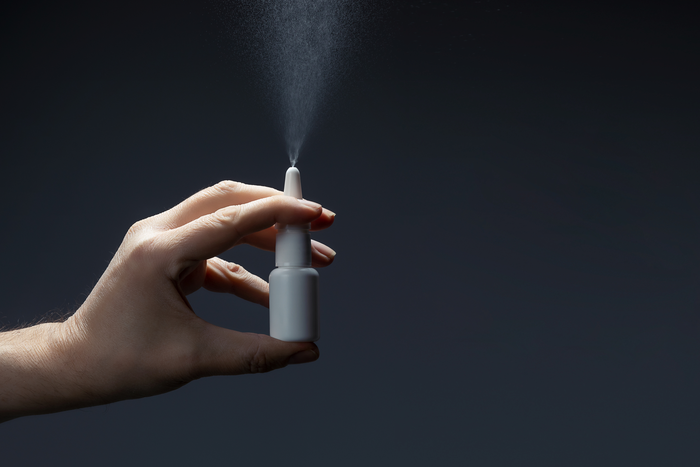The Independent's journalism is supported by our readers. When you purchase through links on our site, we may earn commission.
New nasal spray found ‘effective’ in preventing and treating Covid in mice
A compound in the spray could also be effective in blocking Omicron infections

Your support helps us to tell the story
From reproductive rights to climate change to Big Tech, The Independent is on the ground when the story is developing. Whether it's investigating the financials of Elon Musk's pro-Trump PAC or producing our latest documentary, 'The A Word', which shines a light on the American women fighting for reproductive rights, we know how important it is to parse out the facts from the messaging.
At such a critical moment in US history, we need reporters on the ground. Your donation allows us to keep sending journalists to speak to both sides of the story.
The Independent is trusted by Americans across the entire political spectrum. And unlike many other quality news outlets, we choose not to lock Americans out of our reporting and analysis with paywalls. We believe quality journalism should be available to everyone, paid for by those who can afford it.
Your support makes all the difference.A new nasal spray treatment may soon help protect against Covid after it was found to be effective in shielding mice from most of the disease’s variants of concern (VOCs).
The spray, developed by scientists including those from the University of British Columbia (UBC) in Canada, was found to be “highly effective” in preventing and treating disease in mice caused by the Delta variant.
Researchers also pointed out that the treatment is the first of its kind proven to be effective in mice against the Alpha, Beta and Gamma VOCs.
They also said the N-0385 compound in the treatment could also be effective in blocking Omicron infections after it was tested in lab-grown human lung tissue.
The findings could, thus, soon lead to a novel therapeutic spray for humans, scientists said in an unedited version of the study manuscript posted on Monday in the journal Nature that is peer reviewed, but yet to be published.
Several VOCs have emerged since the early beginnings of the Covid pandemic in December 2019, with the Delta and Omicron variants leading to reduced effectiveness of vaccines.
“This is the first of its kind [treatment]. One advantage is that it works early in the infection, even after someone has already acquired the virus,” study co-author Hector Aguilar-Carreno from Cornell University said in a statement.
The compound, according to scientists, works by blocking the activity of a particular human enzyme used by the virus to infect a host cell.
Since this enzyme is present in nasal cells, where the virus tends to enter, scientists said making a nasal spray could be the most practical and effective way to administer the compound.
When researchers tested the compound on four Covid variants, including Delta, in human lung cells and in mini lab-grown organs as well as tissue cultures, they found that it inhibits infection “with no evidence of toxicity”.
“Our unpublished results represent encouraging findings with the current rapid propagation of Omicron BA.2 around the world,” study co-author François Jean from UBC said in a statement.
“Overall, we have developed and characterised N-0385, a novel highly potent inhibitor of TMPRSS2-like proteases [an enzyme] that blocks Sars-CoV-2 [scientific name for the novel coronavirus that causes Covid] VOCs and is broadly protective against infection and mortality in mice,” scientists wrote in the study.
The compound, once proven effective in humans, may be used in combination with already available drugs that inhibit the virus’ replication, to provide a stronger defence against the VOCs, according to researchers.
“The compound is unique because it blocks entry at the cell surface, without having to get into the cell, which prevents it from causing any detectable cell damage. As well, it’s highly potent, in that it needs only a tiny amount to work very effectively,” study co-author Andrea Olmstead said in a statement.
Scientists also reported that N-0385 not only helped with the prevention of Covid in mice, but also treatment 12 hours after infection, including with infection-related weight loss and levels of the virus in mice lungs, compared with controls.
They said no mutations relating to this enzyme’s mechanism have been reported in the virus so far, as has occurred with other enzymes and Covid variants, adding that this could make it a useful target for defence against future strains of the virus.
The compound, if approved by authorities, should be used as an entry inhibitor that blocks entry of the virus to cells while other prescribed Covid drugs reduce replication, researchers said.
“The big picture is, there are multiple steps in the life cycle of a virus. The first step is entering a cell to pass on genetic material, then it goes on to replicate. So you would use both drugs: N-0385 could block most of the virus’ entry, making less work for the replicator drug,” Dr Jean explained.
Join our commenting forum
Join thought-provoking conversations, follow other Independent readers and see their replies
0Comments